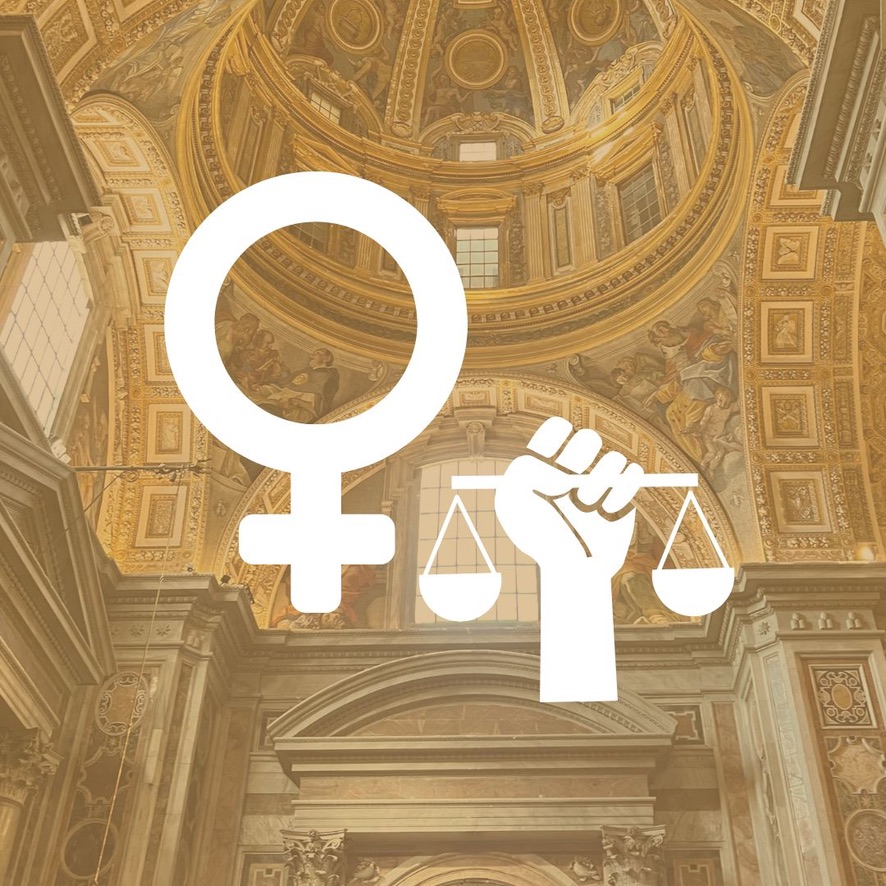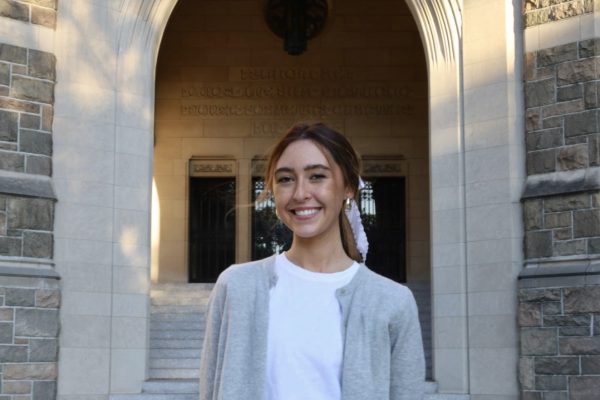For centuries, the Catholic Church has marginalized women, despite their pivotal role in the church, and it is time for that to change. In nearly 2,000 years, the Catholic Church has had 266 popes, none of whom have been women. Women represent over half of the church’s membership, yet they are systematically excluded from leadership. In Catholic tradition, women can only participate in six of the seven sacraments — they are denied the choice of pursuing Holy Orders, which are reserved solely for men.
As Father Kenneth Doyle points out, “The fundamental reason why the Catholic Church ordains only males to the priesthood is historical: Jesus chose only men in selecting the Twelve Apostles, and the Church feels bound by that choice made by Jesus. And so, an all-male priesthood has been an unbroken tradition in the 2,000 years of the Church’s history.” However, that claim is unfounded, as the Catholic Church also holds that Mary Magdalene, a woman, was the Apostle to the Apostles, a title given to her by Saint Thomas Aquinas in the 13th century. Matthew, Mark, Luke and John, the authors of the Gospels in the New Testament, all attest that Mary Magdalene was at the tomb where Jesus was resurrected on the first Easter Sunday morning and that she was sent to share this news with the 11 remaining Apostles. Mary Magdalene’s designation as the Apostle to the Apostles powerfully disproves the church’s claim of a male-only tradition.
Furthermore, the claim that the exclusion of women in certain pastoral roles is historical is a blatant misinterpretation. According to the National Catholic Reporter, “There is no question that there were women deacons in the past, both in the Eastern and in the Western churches.” Historically, there is evidence of women deacons in early Christianity, including in Scripture with Saint Phoebe, in epigraphs, letters, chronicles and ordination rites. While it is often undisputed that women deacons existed, many theologians debate about the role they played in the church. “The roles that all these women held in common seem to have been the reading of the Gospel, preaching and teaching,” said Gary Macy of the National Catholic Reporter.
The historical precedent for women deacons is clear and compelling, yet the church continues to ignore it. Although many practicing Catholics want this issue to be addressed, the hierarchy of the church seems to continuously sweep it under the rug. I just returned from Rome, where the Synod on Synodality is currently taking place. The Synod began three years ago in October 2021 and is set to conclude later this month. The National Catholic Register describes The Synod as “a multi-year, worldwide process of listening, dialogue and discernment encompassing a broad range of issues confronting the Catholic Church.” Its goal is to foster communion in the church by listening to the Word of God, participating in the church through collective prayer, dialogue, discernment and listening and fulfilling the mission to witness and celebrate the love of God in the midst of the human family.
In my recent visit to Rome, I met with Synod delegates, including Sister Nathalie Becquart of the Vatican Synod Office, Archbishop Ryan Jiminez of Agaña and Father Agbonkhianmeghe Orobator of the Jesuit School of Theology at Santa Clara University. While they had varying opinions about synodal matters, they all emphasized the importance of listening to the needs of one another. Despite this, the Synod is doing very little to address matters pertaining to women clergy, including women deacons. On the issue of women deacons, Cardinal Víctor Manuel Fernández, prefect of the Dicastery for the Doctrine of the Faith, told members of the Synod, “We know the public position of the pope, who does not consider the question mature.” He added, “The opportunity for a deepening remains open, but in the mind of the Holy Father, there are other issues still to be deepened and resolved before rushing to speak of a possible diaconate for some women.” Otherwise, “the diaconate becomes a kind of consolation for some women, and the most decisive question of the participation of women in the church remains unanswered.”
This is reminiscent of Pope Francis’ 60 Minutes interview in May when interviewer Norah O’Donnell asked him if there was a possibility of ordaining women deacons in the future and he responded with a simple “no.” While there are many scholars and practicing Catholics who think that there are both practical and historical reasons women should be ordained as deacons in the Catholic Church, the hierarchy of the church shuts off the conversation. Pope Francis emphasizes the importance of the Synod and listening to each other, while simultaneously shutting down important conversations many practicing Catholics want to have. This shows the hypocrisy of the hierarchy of the church. The church is for all of us, not just ordained men. While the argument for women deacons is one issue in itself, the Vatican undoubtedly needs to allow us to have these conversations in the first place.
Hailey Baker, FCRH ’27, is a political science and philosophy double major from Gaithersburg, Md.
















































































































































































































Luis Gutierrez • Oct 23, 2024 at 4:53 pm
A sacrament cannot be partitioned by sex. The next pope should be a nun.